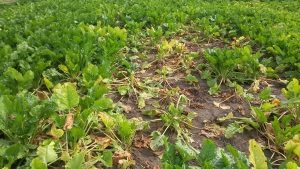… the case for a more nuanced and balanced approach.
Join the consultation on the Draft National Action Plan on the Sustainable Use of Pesticides
.
Earlier this year, a decision was made to allow farmers to use a controversial pesticide:
Ban on ‘bee-harming’ neonicotinoids lifted – Vision Group for Sidmouth
.
The decision three years before to ban it had also been controversial:
.
The Game & Wildlife Conservation Trust is calling for a Comparative Risk Assessment to be undertaken before such decisions are made:
.
 “Banning is not always best” – our submission to the Draft National Action Plan on the Sustainable Use of Pesticides
“Banning is not always best” – our submission to the Draft National Action Plan on the Sustainable Use of Pesticides
The use of pesticides is hotly debated, but arguments around it are often absolute and lack nuance. The government derogation for farmers to use the neonicotinoid thiamethoxam on sugar beet this year (dependent on evidence of potentially yield threatening levels of pests) created lots of headlines, plenty of outrage and, at the time of writing, 50,597 signatures to reverse the decision.
This is to protect their crop from the beet yellows virus spread by aphids, a serious problem that has significantly reduced yields in recent years. This issue alone presents the complexity of the situation. A pest damaged crop will take up less fertiliser than that applied, as yields have fallen by 20-25%, and as a result this excess fertiliser could leach from the soil, negatively impacting water quality.
We used our submission to make the case for a more nuanced and balanced approach. Each time a product is banned (or, indeed, approved) it will have direct and indirect impacts. One such example is banning the herbicide glyphosate. There are undoubtedly some benefits, but little attention is given to the potential changes it will bring about – how much more ploughing will take place? What will this do to carbon emissions? To soil health? To water quality?
Changes to the environment do not happen in isolation and we are calling for a Comparative Risk Assessment to be undertaken before such decisions are made. We also encourage the government to work with manufacturers and users to develop mitigation measures whilst alternative solutions are developed, rather than waiting until emergency solutions are needed.
Where the Precautionary Principle exists – acting to prevent potential harm before it happens – so too should the Innovation Principle, ensuring progress and invention aren’t hampered. Without being part of the Common Agricultural Policy, we can move away from the hazard-based approach used by the EU and focus on a risk-based approach.
You can read our full submission here >
.
With more here:
Sustainable use of pesticides: draft national action plan – GOV.UK
Sustainable Use of Pesticides: Draft National Action Plan – Defra – Citizen Space